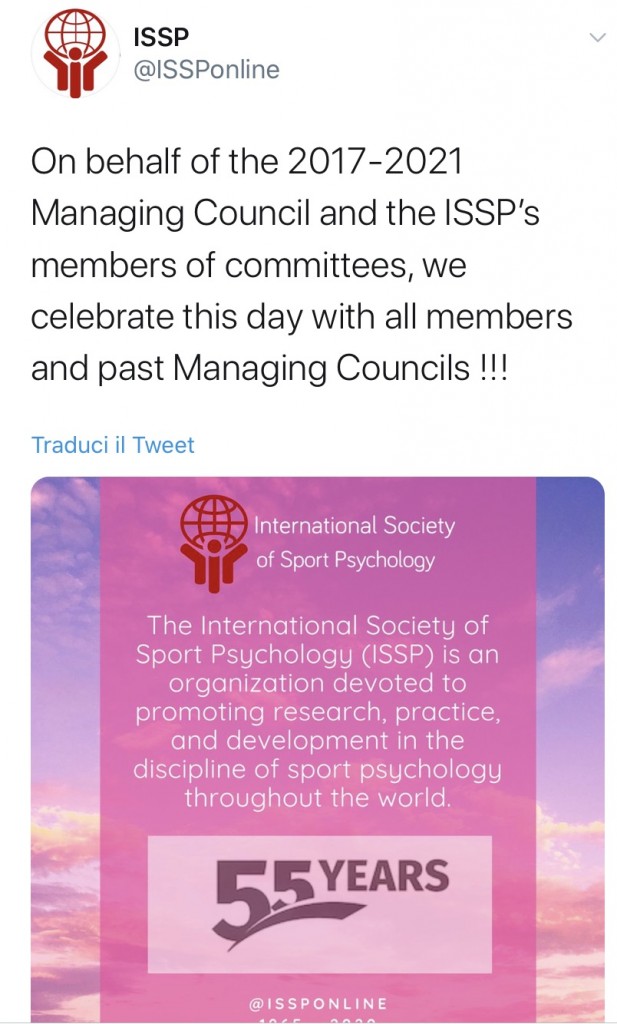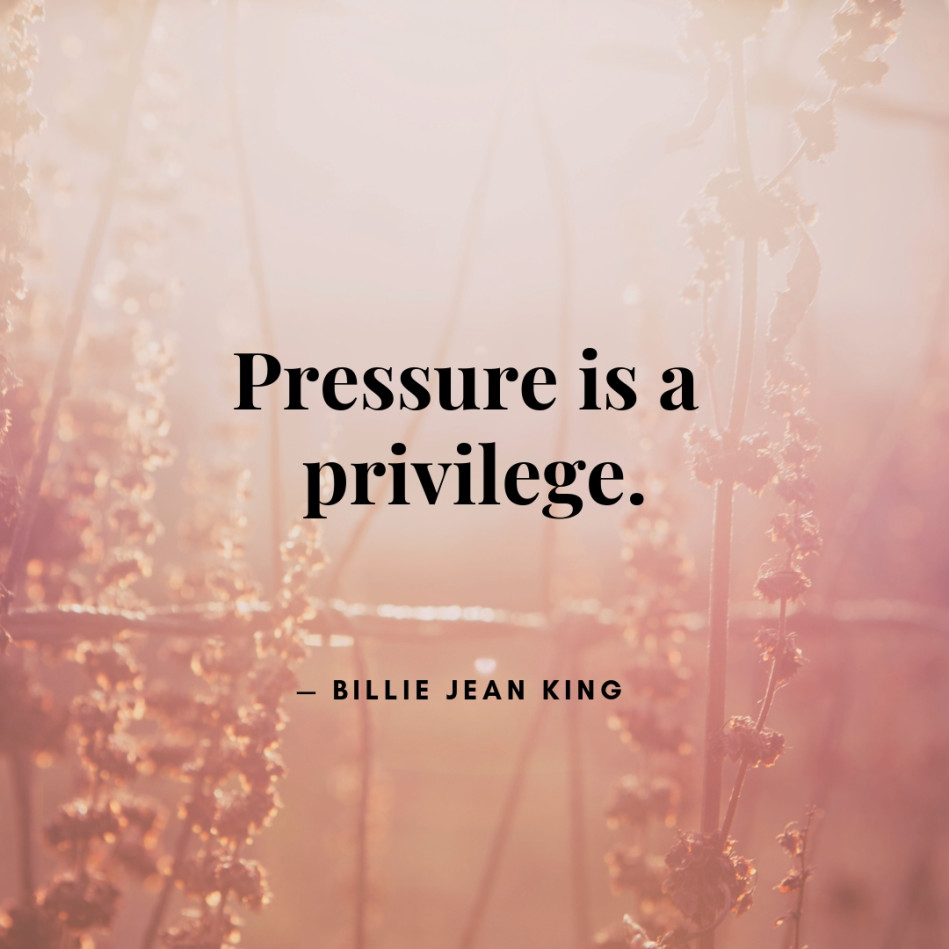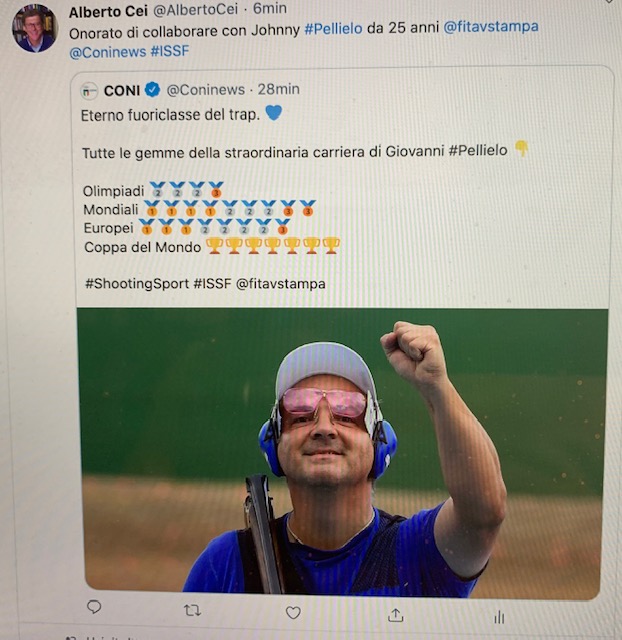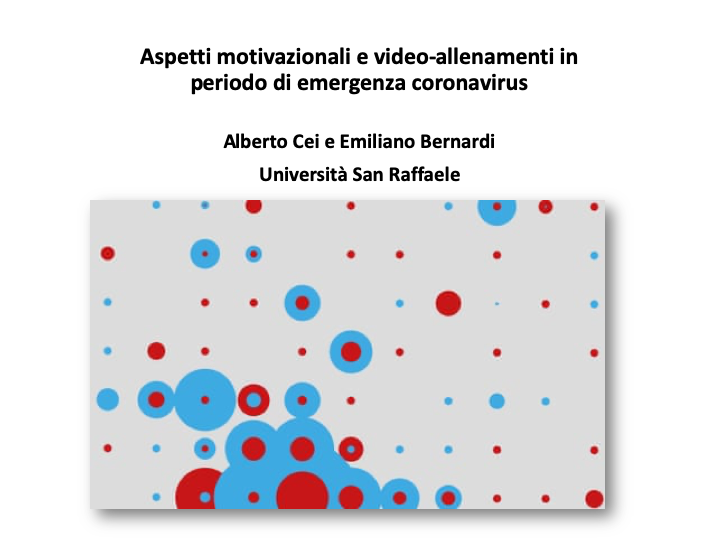Yesterday I wrote to Glyn Roberts in relation to the special issue of the International Journal of Psychology that we will publish this year to celebrate the 50th anniversary of this journal, born in 1970. These various events brought back memories to me when I first met Glyn and the other members of the International Society of Sport’s managing council. It was in Varna, Bulgaria, in 1987, I was 32 years old and at that time it was quite incredible for me to attend a meeting of the managing council, in place of Ferruccio Antonelli, who had not wanted to attend, to talk about the future of the Journal and above all to get some of them, Robert Singer, John Salmela, Lars Unestahl, Miroslav Vanek or Glyn Roberts to take over the its scientific responsibility. They were very friendly with me, as North Americans usually are, perhaps also for the reason they expected an old and formal person, a bit in Antonelli’s style. And so they were surprised when they met me. There was a lot of free time, spent playing tennis, running and walking. I had read the book by John Silva III and Robert Weinberg entitled “Psychological Foundations of Sport” and, therefore, I knew the chapters by John Salmela and Glyn Roberts to whom I never stopped asking questions about motivation rather than the origins of sports psychology and its role in North America.
Certainly very kind but nobody wanted to take responsibility for the Journal. They knew Antonelli and that it would be difficult to collaborate with him, given his history in the ISSP and also because it was his habit to publish all the articles that were sent to the Journal, without applying any form of review. I said that I was aware of this way of managing the journal but that alone I could never change this kind of approach and that, moreover, I did not have the competence to manage a scientific journal.
At the end of the discussion, John Salmela raised his hand, basically saying: “Okay, I’m willing to help the Journal, because in any case it represents the International Society of Sport Psychology”. His terms were that he and I would be the new co-editors, that Antonelli would withdraw and on this basis we would build the system to improve the scientific quality of the Journal. Things didn’t exactly go exactly that way, because Antonelli remained for some time in the role of editor-in-chief, he didn’t play any function but wanted to maintain the leadership in the eyes of the world. However, the system we put together worked and, in those years, the Journal grew in scientific quality. We worked a lot with John, spending a lot of time together in Canada, first in Montreal and then in Ottawa and in Italy, in Rome. We became friends and we saw each other every year for more than twenty years. Another meeting with the managing council was in Ottawa in 1992 (as in the picture below).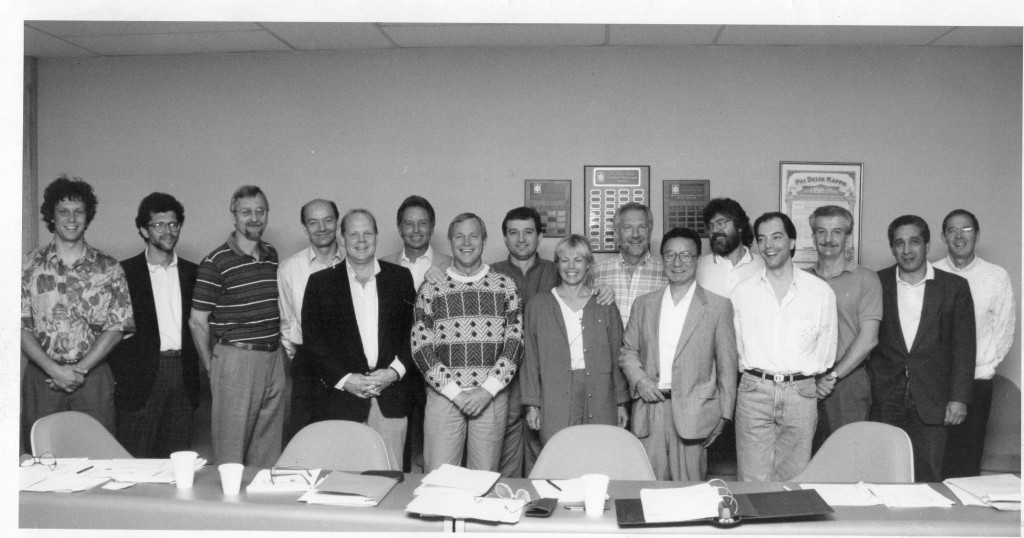
From left Pierre Trudel, Alberto Cei, Jurgen Nitsch, Gerd Konzag, John Salmela, Robert Singer, Denis Glencross, Gershon Tenenbaum, Marit Sorensen, Glyn Roberts, Atsushi Fujita, Semen Slobunov, Sidonio Serpa, Richard Magill, Carlos Moraes and Terry Orlick.

